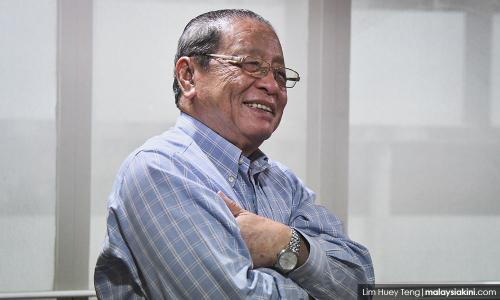LETTER | After 44 years, Kit Siang may finally get his anti-hopping law
LETTER | In March 1978, DAP’s Lim Kit Siang moved a private member’s bill in Parliament for an anti-hopping law. Unfortunately, his attempt to pass legislation to restrict party-hopping was unsuccessful.
He foresaw a political future dominated by greed and abuse of the voter mandate.
Four decades later in 2020, his dystopian vision came to pass.
The country was ravaged by political turmoil. Mass defections of almost 40 MPs caused the collapse of the Pakatan Harapan federal government.
Malaysia was sent into a tailspin as the country changed leadership three times in the span of two years. Politics dominated the headlines even as the average Malaysian grappled with inflation, rising food prices, and a global pandemic.
While the ‘Sheraton Move’ may have lifted the veil on party-hopping, in reality, it has been a historically problematic issue in Malaysian politics.
The first instance of party-hopping can be traced back to the 1959 general election.
PAS, then known as the Pan Malayan Islamic Party became Terengganu’s state government after winning 13 seats in the state election. BN, then known as the Alliance, only won seven.
Two years later, however, a motion of no-confidence brought down the ruling state government when five elected reps decided to jump ship and join the Alliance.
Even though DAP consistently championed an anti-hopping law, it was impossible to ignore the fact that party-hopping is protected under the Constitution.
Amid confusion over how to write legislation that would prevent abuse of voter trust and at the same time protect an elected representative’s right to freely associate, the anti-hopping law was regrettably placed on the back-burner.
In 2008, the late Karpal Singh reiterated the DAP’s stance on party-hopping even in instances when it could have been beneficial to the party.
“We don't welcome any renegades to defect to DAP. The trust of the voters is sacred. There must be honour among the representatives who won under the Barisan ticket," he said.
He believed party-hopping should be outlawed as it was synonymous with cheating the voters.
DAP finally got the chance to secure bipartisan support for anti-hopping legislation through a Memorandum of Understanding (MoU) between Harapan and the federal government.
Harapan’s credibility took a big hit with many criticising the coalition for cooperating with the Umno-led federal government.
DAP’s Tony Pua and Ong Kian Ming felt the backlash firsthand.
The duo floated the idea of leveraging Harapan’s parliamentary support in exchange for crucial reforms including the anti-hopping law and was immediately lambasted all over social media by hard-core supporters.
However, we have to be grateful for elected representatives like Pua and Ong who willingly put their reputations on the line for the greater good.
The MoU has already seen major gains for the public including lowering the voting age, automatic voter registration, equal funding to opposition constituencies, strengthening parliamentary select committees, and interest payment exemption for B50 loan borrowers in 2021.
As for the anti-hopping law, it seems that Harapan is getting closer to finishing what Kit Siang started 44 years ago.
The anti-hopping law will be tabled and debated this week and is expected to be passed sometime before September.
The views expressed here are those of the author/contributor and do not necessarily represent the views of Malaysiakini.
RM12.50 / month
- Unlimited access to award-winning journalism
- Comment and share your opinions on all our articles
- Gift interesting stories to your friends
- Tax deductable
